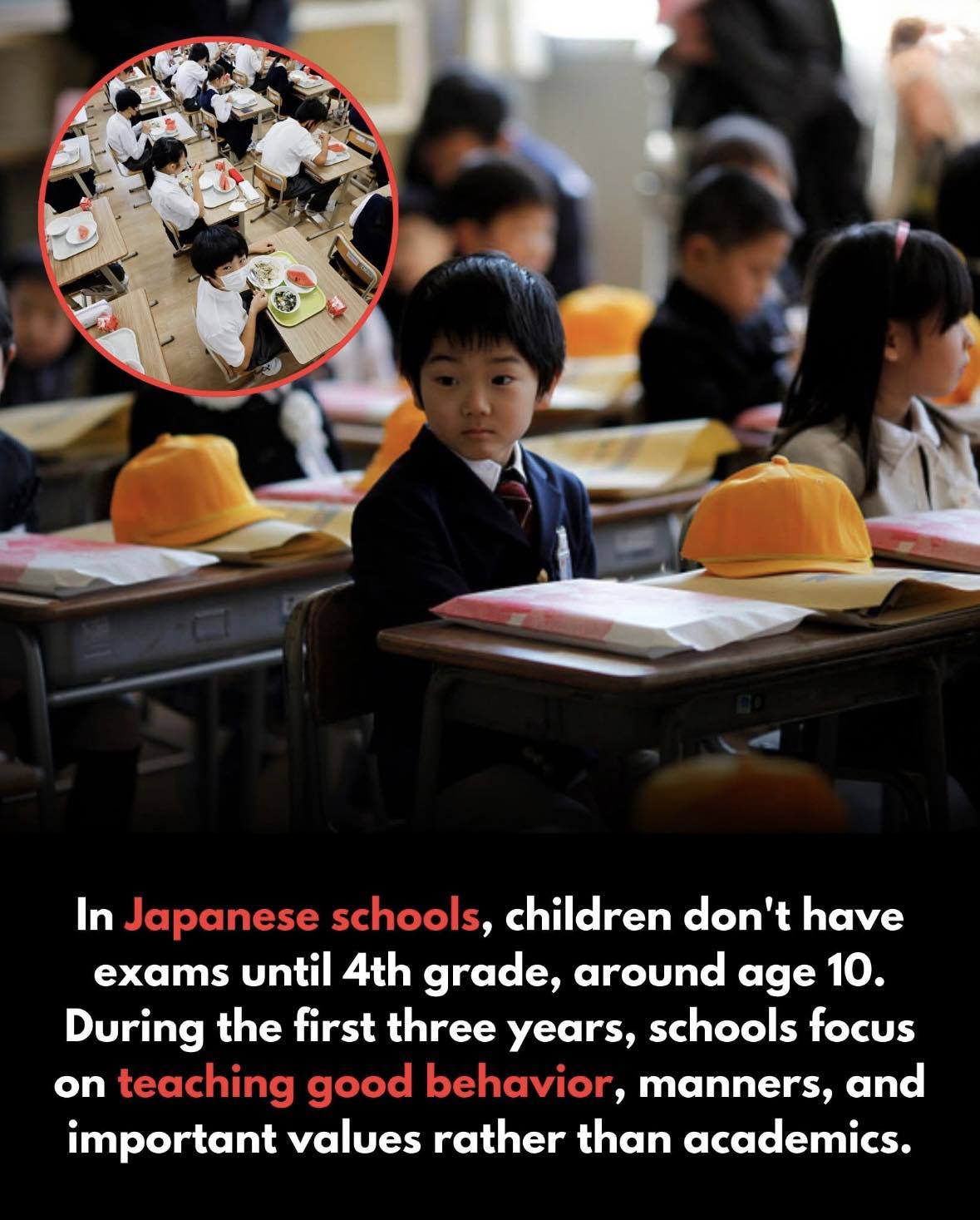Japan’s Unique Approach to Early Education: Growing Character Before Exams 🍃📚
- SaoMai
- October 18, 2025

In Japan, the approach to early education stands in stark contrast to many other countries. Here, children don’t face formal exams until 4th grade, around the age of 10. Instead of diving headfirst into academics, the first few years of schooling are focused on something far more fundamental: life skills. 🧠❤️
From their earliest years, Japanese children are taught the importance of manners, empathy, discipline, and respect. These values aren’t just part of the curriculum — they are woven into the fabric of the school day, guiding interactions and shaping the students into compassionate, thoughtful individuals. 👦👧💖 This child-centered approach places a significant emphasis on developing emotional intelligence and supporting mental health. It recognizes that a well-rounded education isn’t just about mastering math or reading but about nurturing the whole child. By focusing on cooperation, positive behavior, and instilling core values, Japanese schools aim to build a strong foundation not just for future academic success, but for lifelong productivity and personal well-being. 🌱✨
This child-centered approach places a significant emphasis on developing emotional intelligence and supporting mental health. It recognizes that a well-rounded education isn’t just about mastering math or reading but about nurturing the whole child. By focusing on cooperation, positive behavior, and instilling core values, Japanese schools aim to build a strong foundation not just for future academic success, but for lifelong productivity and personal well-being. 🌱✨
This shift in focus has sparked global conversations about how best to nurture children and prepare them for the challenges of the world. As other nations examine Japan’s approach, questions arise about how we balance academic rigor with emotional growth, and how we can raise resilient, balanced, and successful children who are equipped to thrive in all areas of life — not just the classroom. 🌍🧸
Japan’s educational philosophy challenges the traditional notions of success and encourages us all to reconsider what truly matters in a child’s development. Could we all benefit from a little more character building before we rush to exams? 💭










